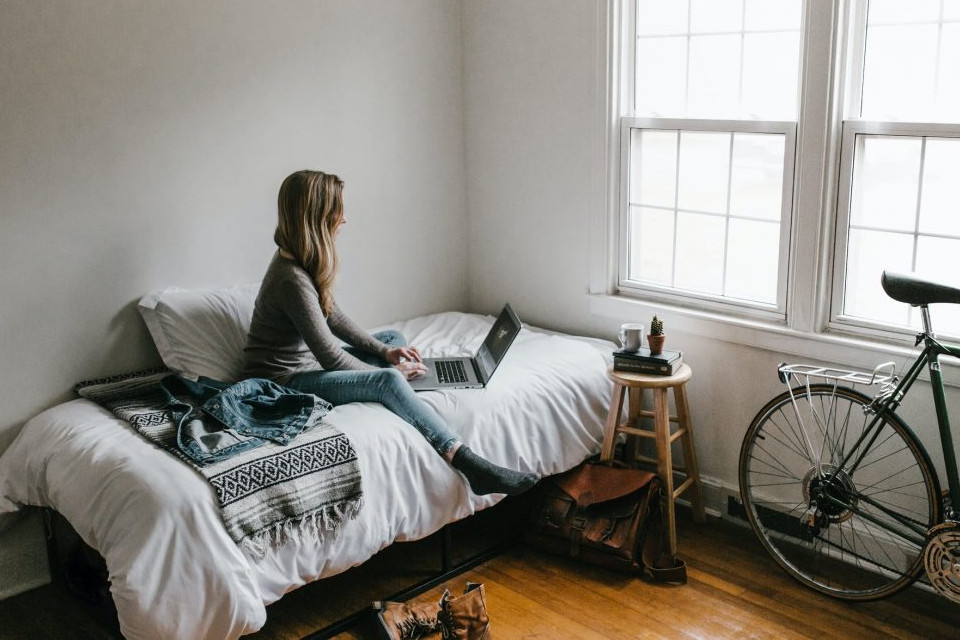British businesses look set to be more flexible about working from home in the future – with nearly half of bosses believing it will save them money.
A poll of 1,000 employers in the UK found prior to lockdown, just 45 per cent were comfortable with staff working away from the office. But seven in 10 are now considering changing previous rules and regulations, after being so impressed with how staff have reacted. In addition, 57 per cent of business owners are already looking at adapting many of their usual practices moving forward.
The study was commissioned by Vision Direct, which is responding to the changing landscape following a surge in online customers during the month of April.
Ashley Mealor, from Vision Direct said: “Within a few weeks of lockdown we experienced a surge in new customers – the figure was 69 per cent up on the same time the previous year. We quickly identified a change in our customer’s behaviour, as they react to events around them. All businesses have had to adapt and respond quickly to the constant changing situation, and most are having to identify safer, quicker, more streamlined ways of trading for the future. We’re anticipating an even greater move towards online shopping, and we are exploring options for online eye tests, to cater for customers who either can’t get to the high street, or don’t want to.”
The study also found one third of businesses are planning to offer more online services, while a fifth will be reducing current office space. For 13 per cent of owners, reducing team sizes in certain areas of the business will become necessary, as will downsizing for 14 per cent. Just under seven per cent of those polled intend to bring manufacturing into the UK.
Eight in 10 employers say more meetings will take place over video conferencing rather than face-to-face, and staff who do have to meet others will do so in smaller numbers. Staggered start times, professional cleaning services and the introduction of PPE are also being considered by many bosses – and some intend to give their staff the freedom to plan where they want to work, and when.
All measures will be reassuring for employees, who would like to see the introduction of more flexible working practices, to include a mix of home and office working, as well as remote meetings. This could also lead to a rise in job opportunities for those not living in cities like London, if employers are more open to recruiting staff for remote working.
A further study of 1,000 workers currently at home, conducted via OnePoll, found many feel it is safer and more sensible to continue working from home, with as few people in the office as possible.
In addition to the safety factor, 35 per cent feel they are more productive in the comfort of their own home, while 37 per cent say their attitude to work remains unaffected. More than half of those polled have maintained good business practice throughout lockdown, with 22 per cent continuing to dress in work attire and 51 per cent creating an efficient home office set up.
If encouraged to return to the workplace, 47 per cent want 2 metres between all desks, and 25 per cent would like Perspex partitions. A ban on travel to bigger cities such as London and Birmingham is preferable for 16 per cent, while 35 per cent want to see shorter working weeks, with four days on and three days off.
TOP SAFETY MEASURES BRITAIN’S BOSSES PLAN TO IMPLEMENT
1. The option to work from home – 43 per cent
2. Desks set 2 meters apart – 32 per cent
3. The ability to conduct all meetings via video conferencing – 30 per cent
4. PPE – including face masks, gloves, hand sanitizer on decks – 30 per cent
5. Reduced number of people in meetings – 25 per cent
6. Professional cleaning daily – 24 per cent
7. Staggered start times – 22 per cent
8. Ban of external guests to offices – 19 per cent
9. Shorter working weeks – 4 days on 3 days off – 14 per cent
10. Shift patterns – 14 per cent
11. A ban on travel to cities such as London, Birmingham etc. – 11 per cent
12. Perspex partitions on desks – 11 per cent
13. Desks set out so everyone faces the same way – 10 per cent
14. Wider entrances – 4 per cent















